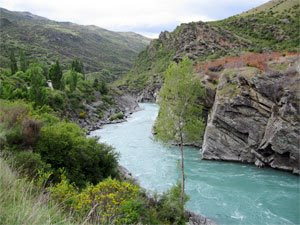
Hello Everyone!
A lot of people have argued for years that water issues are fundamentally local issues. But there are many reasons why this isn't true. Certainly there are local issues such as local climate, rainfall, population, politics, affordable solutions and such. But yes, water issues are also a part of the global big picture.
Not the least because of global warming, which is among other things of phenomena with potential hydrological consequences of massive proportions-enough to scare an Old Testament scholar.
Perhaps the most notorious aquatic consequence of global warming is sea level rising. Which in addition to displacing people, in some cases whole island nations, could mean that sea water could get into some aquifers and make the water too saline for drinking, farming, or other key uses. Receding mountain glaciers and snowpacks are bad news not just as an indicator of global warming but because mountain glaciers have been refered to as "water towers of the world" in the sense that they continually melt slowly throughout much of the year and "feed" rivers, lakes, ecosystems, farms and so on. In the Pacific Northwest glacier fed rivers are key to both the population and to the famous salmon runs. The Himalayn glaciers feed the Indus, Gang-Brahmaputra, Yellow, Yangtze, and Mekong rivers. In South America the Andean glaciers are extremely importand. And so are many smaller glacier systems locally.
Furthermore even small differences in temperature can cause reservoirs and irrigation water to evaporate more rapidly. The Western US is likely to experience water shortages due to increased evaporation of the Colorado River. However in the United States the ability to mitigate such situations is relatively high. Sub-saharan Africa is likely to have fewer resources to cope with the increase in mega-droughts that som geo-scientists fear may come with climate change.
But perhaps the scariest effect of global warming is out and out desertification and the remobilization of sand dunes.
If you put all of these problems together it becomes increasingly easy to worry about how the world is going to supply not only water but also food to a human populaton that may also be suffering from an increase in natural disasters and displacement. And how various ecosystems might cope with pressure from both human shortages of water, and rising temperatures.
So yes, a more severe, perhaps drastically more severe, global water crisis is yet another potential consequence of global warming.
Say Goodnight Readers!

No comments:
Post a Comment